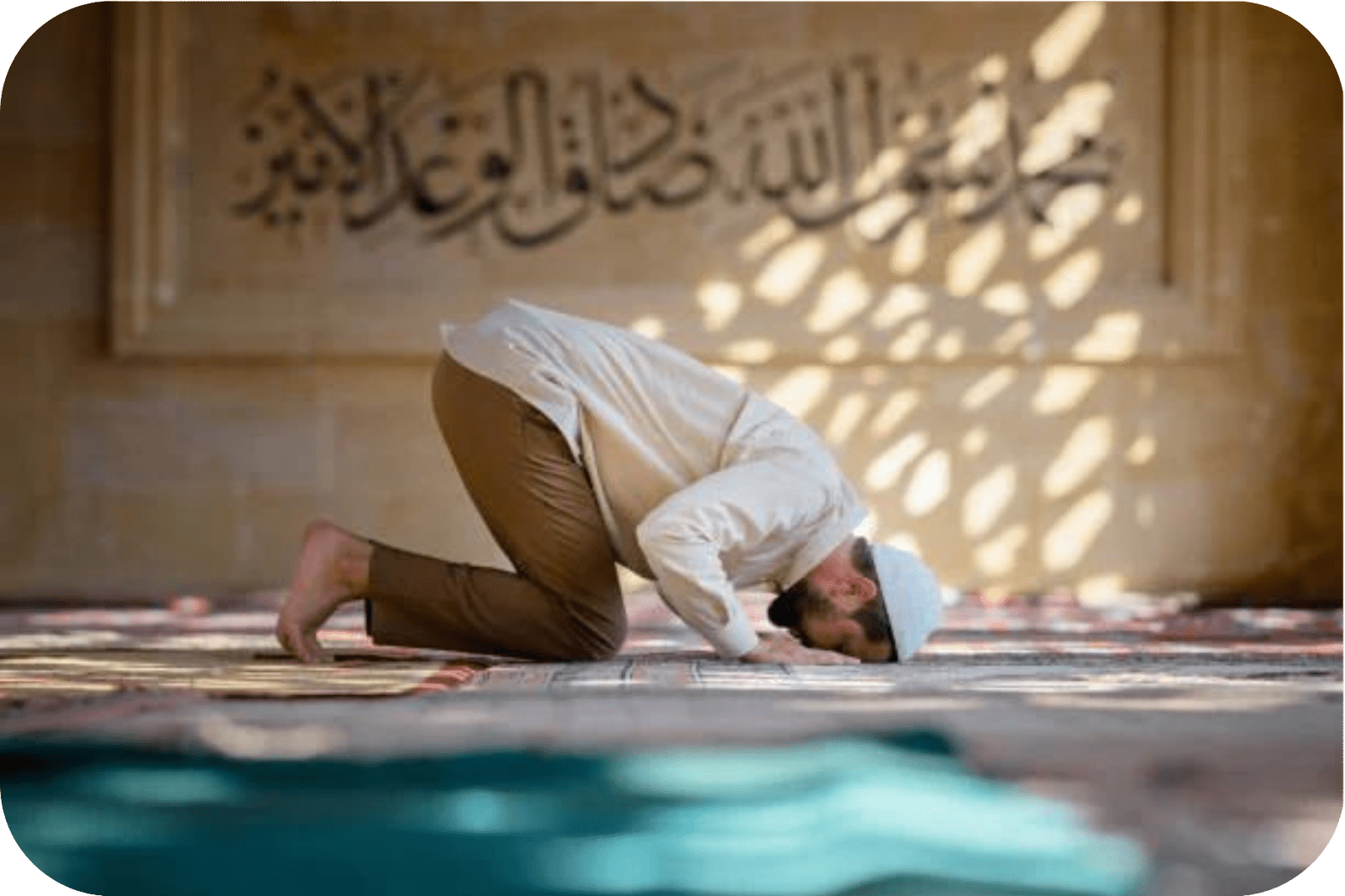11 Famous Muslim Women in Islamic History
11 Famous Muslim Women in Islamic History

Women are the mothers, sisters, daughters, and wives, and life cannot be imagined without them. Islam came to elevate the status of women, giving them great importance, and their active role has been evident since the mission of the Prophet (peace be upon him).
As we celebrate International Women's Day, it is crucial to recognise the profound impact of women in the Islamic history. In this article we will showcase 11 of the most prominent women who have made a lasting impact in the history of Islam.
Explore our curated collection that pays tribute to the strength, wisdom, and resilience of women. This Women's Day, discover meaningful products that uplift and empower, reflecting the elevated status Islam bestows upon women.
![]()
Status of Women in Islam
In Islam, women are considered equal to men in their worth and importance, The Quran states:
“And their Lord has accepted their supplication, (saying) 'Never will I allow to be lost the work of any of you, male or female. You are (members) one of another.”
(Surah Ali 'Imran, verse 195)
This verse is a clear indication that both men and women hold equal value and significance in the eyes of Allah.
Furthermore, Islamic teachings ensure that women are granted their rights and responsibilities. The Quran affirms:
“And due to the wives is similar to what is expected of them, according to what is reasonable.”
(Surah Al-Baqarah, verse 228)
This verse emphasises the fair treatment and mutual rights between spouses, ensuring justice and respect in marital relationships.
Throughout Islamic history, there have been numerous influential women who have served as role models. By recognizing and honouring the contributions of women, Islam promotes a society that respects and values their presence and participation.
1. The Four Best Women of Jannah (Paradise)
As we delve into the inspiring stories of these remarkable women, why not explore further in our collection of Islamic books? Discover the narratives that chronicle the lives of these extraordinary women, offering deeper insights into their contributions and legacies.
![]()
1. Khadija bint Al-Khuwaylid: The Beloved Wife and First Supporter of Prophet Muhammad (P.B.U.H)
Khadija bint Al-Khuwaylid (RA) holds a special place in Islamic history as the beloved wife and supporter of Prophet Muhammad (P.B.U.H) and the first believer. She was a remarkable businesswoman known for her intelligence, integrity, and strength of character.
Khadija (RA) played a pivotal role in the early days of Islam, accepting the message of Prophet Muhammad and offering him unwavering support during challenging times. Her unwavering faith and trust in the Prophet served as a source of encouragement for him, enabling him to spread the message of Islam with confidence.
Khadija (RA)'s immense love and support for the Prophet were an inspiration to the early Muslim community and continue to serve as an example of a righteous wife and companion.
2. Fatima Zahra: The Daughter of Prophet Muhammad (P.B.U.H)
Fatima Zahra (RA), the daughter of Prophet Muhammad (P.B.U.H), holds a unique position in Islamic history. She was known for her piety, devotion, and unwavering faith in the face of hardship.
Fatima Zahra (RA) embodied the values taught by her father, including patience, humility, and kindness. Her unique relationship with the Prophet reflected a deep bond and mutual love and respect.
Fatima Zahra (RA) played a vital role in upholding the teachings of Islam, and her leadership qualities continue to inspire Muslims worldwide. Her legacy as the beloved daughter of Prophet Muhammad serves as a source of inspiration for women in Islam, emphasising the importance of faith, strength, and dedication to one's beliefs.
3. Aisha bint Abu Bakr: The Beloved Wife and Scholarly Companion of Prophet Muhammad (P.B.U.H)
Aisha bint Abu Bakr (RA), a highly esteemed figure in Islamic history, was the beloved wife and scholarly companion of Prophet Muhammad (P.B.U.H). She possessed a remarkable intellect and played a crucial role in the transmission of Hadiths (sayings and actions of the Prophet).
Aisha (RA)'s knowledge and scholarly contributions have had a profound impact on Islamic jurisprudence. Her narration of Hadiths and her sharp intellect made her an esteemed teacher and jurist in her own right. Aisha's exemplary character, leadership, and dedication to learning continue to inspire men and women in their pursuit of knowledge and understanding of Islam.
Her significant contributions to Islamic scholarship have left an indelible mark on the faith, inviting admiration and respect from believers worldwide.
4. Maryam (Mary): The Virgin Mother of Prophet Isa (Jesus)
Maryam (RA), known in Christian tradition as Mary, occupies a unique and revered position in both Islamic and Christian narratives. She is the mother of Prophet Isa (Jesus) in Islam.
Maryam (RA)'s story is prominently featured in the Quran, highlighting her exceptional faith and the miraculous birth of Prophet Isa. She’s a symbol of purity and steadfast faith and serves as an inspiration for Muslims, emphasising the importance of submitting to Allah's will.
Her role as a mother, devoted servant of God, and a central figure in the Abrahamic traditions showcases the shared reverence for her character across religions.
2. Notable Women in Islamic History
1. Zainab bint Ali: A Pillar of Strength and Wisdom in the Household of Prophet Muhammad (P.B.U.H)
Zainab bint Ali (RA), the granddaughter of Prophet Muhammad (P.B.U.H), emerged as a symbol of strength and wisdom in the household of the Prophet. She displayed extraordinary resilience and courage, particularly during the challenging times following the Battle of Karbala.
Zainab (RA) delivered powerful speeches that heightened awareness of the injustices faced by her family, passionately calling for justice and spreading the message of Islam. Her unwavering commitment to the principles of justice and truth continues to resonate with Muslims, inspiring them to stand up against injustice and oppression.
Zainab (RA)'s powerful legacy serves as a reminder of the sacrifice and bravery of the early Muslim community and the importance of standing up for what is right.
2. Hafsa bint Umar: The Guardian of the Quran and Wife of the Second Caliph
Hafsa bint Umar (RA) played a significant role in early Islamic history as the guardian of the Quran and the wife of the second caliph. She was entrusted with the responsibility of safeguarding the written verses of the Quran during a critical period.
Hafsa's dedication and commitment to preserving the Quran ensured its authenticity and protected it from any alterations or omissions. Her role as a guardian of the Quran highlights the importance of knowledge, responsibility, and vigilance in preserving the teachings of Islam.
Hafsa's contribution in preserving the Quran for future generations is a testament to her devotion to the faith and her commitment to upholding its principles.
3. Asma bint Abu Bakr: Exemplar of Courage and Faith
Asma bint Abu Bakr, the daughter of the first Caliph, Abu Bakr (RA), stands out as an exemplar of courage and unwavering faith in Islamic history. Her notable role unfolded during the migration of Prophet Muhammad (P.B.U.H) from Mecca to Medina.
During this perilous journey, Asma demonstrated remarkable courage and resourcefulness. She ingeniously used her belongings to provide sustenance for her father and the Prophet during their stay in a cave.
Her commitment to the cause of Islam and her resilience in the face of adversity earned her a lasting place in the annals of Islamic history.
Asma bint Abu Bakr's legacy inspires Muslims to embrace courage and steadfastness in the pursuit of their faith. Her story remains a source of motivation for those navigating challenges on their journey of devotion to Islam.
4. Umm Ayman (Barakah): Devoted Companion and Stalwart Supporter
Umm Ayman, also known as Barakah, holds a distinguished place in Islamic history as a devoted companion of Prophet Muhammad (P.B.U.H) and a stalwart supporter of the early Muslim community.
As a trusted member of the Prophet's household, Umm Ayman played a crucial role in nurturing and caring for Prophet Muhammad (P.B.U.H) from a young age. Her unwavering loyalty continued throughout the challenges faced by the early Muslim community, including the migration to Medina. Umm Ayman remained a steadfast supporter, offering solace and assistance during times of adversity.
Umm Ayman's contributions to the early Islamic community exemplify the importance of steadfast companionship and support in the face of challenges. Her legacy endures as a testament to the vital role played by devoted individuals behind the scenes of Islamic history.
3. Other Remarkable Muslim Women's
1. Fatima al-Fihri: Founder of the World's Oldest Existing University
Fatima al-Fihri, an influential Muslim woman from the 9th century, left an indelible mark on history as the founder of the University of Al Quaraouiyine in Fez, Morocco.
This prestigious institution stands as the world's oldest existing university, a testament to Fatima's commitment to knowledge and education, her vision extended beyond traditional gender roles of her time.
The University of Al Quaraouiyine created a space where scholars, regardless of gender, could pursue education and contribute to intellectual advancements.
Fatima al-Fihri not only enriched the Islamic intellectual tradition but also paved the way for future generations to access higher learning. Her legacy resonates in the halls of the university, symbolising the enduring impact of Muslim women in shaping the course of knowledge and education.
2. Tawakkol Karman: Yemeni Nobel Laureate and Advocate for Peace
Tawakkol Karman, a prominent Yemeni journalist and human rights activist, rose to international acclaim as a co-recipient of the Nobel Peace Prize in 2011.
Her fearless advocacy for human rights, women's empowerment, and democracy positioned her as a leading voice during the Arab Spring. Tawakkol's dedication to social justice and peace transcended gender boundaries, challenging societal norms.
As the first Muslim Arab woman to receive the Nobel Peace Prize, she became a symbol of resilience and courage, inspiring people around the world.
Her achievements underscore the vital role that Muslim women play in advancing global peace and advocating for fundamental human rights.
3. Sakena Yacoobi: Founder of the Afghan Institute of Learning
Sakena Yacoobi, an esteemed Muslim woman, stands as a beacon of hope for education in Afghanistan. Born into a country marred by conflict, she dedicated her life to transforming lives through knowledge.
In the face of adversity, Sakena Yacoobi founded the Afghan Institute of Learning, an institution committed to providing education and healthcare services, particularly to Afghan women and children.
As a devout Muslim, Sakena's commitment to education reflects the Islamic values of compassion, justice, and the pursuit of knowledge. Her resilience in the challenging socio-political landscape of Afghanistan has earned her global recognition.
Sakena Yacoobi's unwavering dedication to breaking barriers and fostering education continues to inspire not only Muslim women but people worldwide. Through her pioneering work, she has become a catalyst for positive change, proving that education can triumph over even the most challenging circumstances.
Conclusion
The stories of these five famous Muslim women are testaments to the pivotal roles women have played throughout Islamic history. Through their unwavering faith, resilience, and dedication, have paved the way for countless women to follow in their footsteps.
Their contributions continue to inspire and empower Muslim women around the world. At Riwaya we celebrate their achievements and recognize the immense value women hold within the Islamic faith. Happy women’s day to all of you!
Buying at Riwaya
On this Women's National Day, explore our collection tailored for women, featuring health and beauty essentials that promote self-care and well-being. Discover thoughtful gifts to celebrate the women in your life, along with a selection of inspiring Islamic books that offer wisdom and guidance.
At Riwaya we are dedicated to offer a wide range of top quality products that honour the beauty and depth of Islamic tradition.
![]()
Selling at Riwaya
Attention, sellers! Riwaya invites you to showcase your items on our platform. Whether it's health and beauty essentials, thoughtful gifts, Islamic books or else, join us in honouring and uplifting women through your creations.
Join us in fostering a community that appreciates and promotes the richness of Islamic culture and traditions.
FAQs
Q1: Who are the 4 great women in Islam?
The revered four include Khadijah (RA), renowned for her business acumen; Fatimah (RA), the daughter of Prophet Muhammad (PHUB) known for her piety; Aisha (RA), a prominent scholar and wife of Prophet Muhammad (PHUB); and Maryam, the blessed mother of Prophet Isa.
Q2: Who is the most blessed woman in Islam?
Fatimah bint Muhammad (RA), the daughter of Prophet Muhammad (PHUB), holds a special place as the most blessed woman in Islam. Her virtuous life, unwavering support for her father, and resilience in adversity make her a symbol of grace.
Q3: Who is the leader of the women of Jannah (Paradise)?
Aisha bint Abu Bakr (RA) is acknowledged as the leader of the women of Jannah, recognized for her wisdom, contributions to Islamic knowledge, and being the beloved wife of Prophet Muhammad (PHUB).
Q4: Who was known for her wisdom and spiritual insight among the famous Muslim women in history?
Rabi'a al-Adawiyya, celebrated for her profound wisdom and spiritual insight, left an indelible mark with her devotion, poetry, and teachings that continue to inspire seekers of spiritual enlightenment.
Q5: Which woman played a crucial role in the preservation and transmission of the sayings of Prophet Muhammad (PHUB)?
Aisha bint Abu Bakr (RA) played a pivotal role in preserving and transmitting the sayings of Prophet Muhammad (PHUB), her husband, contributing significantly to the compilation of Hadith and Islamic scholarship.



